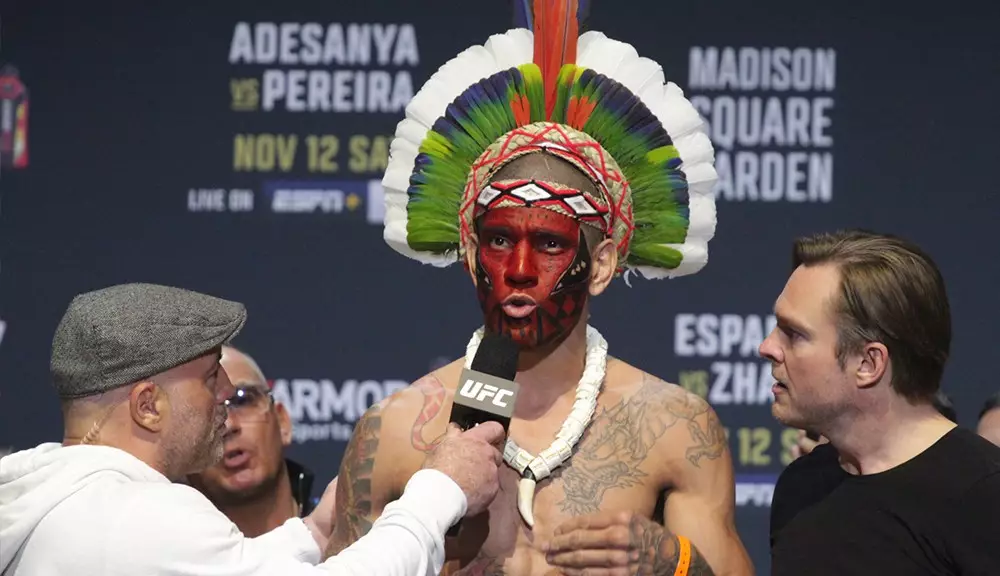The UFC light heavyweight division is currently experiencing a pivotal moment characterized by significant developments and potential conflicts. At the epicenter of this narrative is champion Alex Pereira, who appears to be strategically maneuvering through his title defenses and contender relationships. Pereira’s latest pronouncement regarding his fight schedule raises questions and implications for the division, particularly regarding top contender Magomed Ankalaev. With a rich backdrop of athletic prowess and personal narratives, the stakes couldn’t be higher for both fighters involved.
Alex Pereira, known for his knockout power and striking finesse, is eyeing a return to the Octagon in March. However, his impromptu decision to sidestep a bout with Ankalaev has ignited a debate not only about the legitimacy of title matches but also about the underlying dynamics between fighters. Pereira’s choice can be partially attributed to his personal sentiments, especially regarding Ankalaev’s trash talking, which might be seen as uncouth in the world of mixed martial arts. Dismissing Ankalaev suggests that Pereira is keen on leveraging his title to create favorable matchups for himself, which is not uncommon in the sport.
Complicating matters further is the looming observance of Ramadan, which begins on February 28 and lasts until March 29. This religious period, observed by Ankalaev, poses a significant hurdle for him as he prepares for a title shot amidst fasting and spiritual commitments. Joe Rogan, during his podcast, emphasized the unique difficulties faced by fighters who must balance their professional aspirations with the discipline required during Ramadan. In essence, while Pereira moves forward with his plans, Ankalaev is left to navigate a complex intersection of faith, culture, and professional sportsmanship.
The machinations of Pereira and Ankalaev speak volumes about their respective strategies and the broader implications for the light heavyweight division. Should Pereira successfully avoid a bout with Ankalaev, the question arises: who will step up next? The division thrives on competitive matchups, and denying a top contender his rightful shot could lead to unrest among other fighters and their management teams. Ankalaev’s manager, Ali Abdelaziz, has voiced confidence that his fighter will ultimately get his opportunity, hinting at potential negotiations or alternate pathways to the title.
As this story unfolds, it illustrates the complex web of relationships and events that define the UFC landscape. The interplay between personal motivations, cultural obligations, and competitive aspirations shapes the narratives surrounding these fighters. For fans and analysts, the evolving situation between Pereira and Ankalaev serves as a reminder that in mixed martial arts, timing is not just crucial; it can redefine careers and trajectories. As anticipation builds for future bouts, one thing is certain: the light heavyweight division will continue to intrigue, challenge, and captivate fans around the world.

